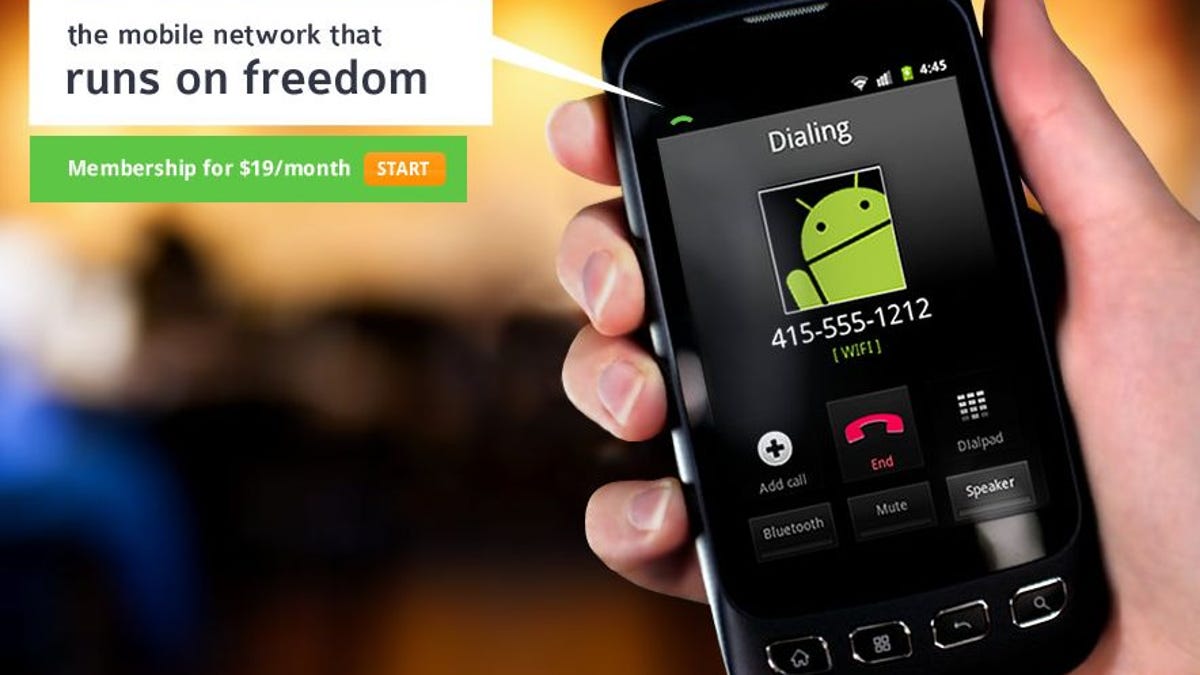Hands-on with the $19-per-month Republic Wireless Android phone
Is this deal too good to be true? Or does Republic deliver on its promise of dirt-cheap phone service?

Last month, Republic Wireless made waves when it announced an Android phone with "unlimited" service for just $19 per month, no contract required.
I've spent the past couple weeks test-driving that phone and service, and I'm happy to report that except for a few wrinkles, both performed beautifully. (Read my original post for the full details on how it all works.)
Let's start with the phone. Republic Wireless currently offers just one model, the LG Optimus S--an entry-level Android phone by any standards, but perfectly serviceable for users with simple needs.
In fact, I'll let CNET's review of the Optimus S give you the full scoop, and just add my two cents' worth of sprinkles: I like the phone's slim, lightweight design and surprisingly peppy performance. It has a decent feature set and runs Android 2.3 (Gingerbread). For its intended audience, I think it's just fine.
(That said, I'd love to see Republic offer something like the Motorola Triumph, which offers a much larger screen and a lot more power.)
Using the Optimus is no different than using any smartphone, except that when you're connected to a Wi-Fi hot spot (which Republic wants you to be whenever possible), calls get routed through it--just as they would if you were intentionally using a voice-over-IP app like, say, Skype.
What's nice is that this is more or less transparent: when Wi-Fi is present, the Optimus taps it. When it's not, the phone defaults to the available cellular network (which in this case is Sprint's).
Where it gets tricky, from a usability standpoint, is when you move between networks. If you're at home on a Wi-Fi call and then get in the car, the call quality will degrade and then drop as you drive away. You can tap an onscreen button to switch to cellular, but that merely ends the call and redials the number--a big hassle for you and the person at the other end. Republic Wireless says it's working to allow this transfer to occur within the same call.
On the flipside, cellular calls don't automatically transfer to Wi-Fi when you get back in range of a hotspot (something else Republic is working on). That makes it that much tougher to keep within your monthly cell-service limits.
In other words, the Optimus isn't yet as smart as it should be. And a handful of very basic features aren't yet working, most notably MMS. (For a list of others, see the company's "State of the Beta" blog post.)
But let's consider the big picture. There's considerable logic behind Republic's approach to phone service, as a lot of talkers spend a lot of their time in range of a home or office Wi-Fi network. Indeed, for anyone who works in an office building where cell service is iffy, the defaults-to-Wi-Fi option may actually afford an improvement in call quality.
And why pay for pricey 3G service when you don't need it? It's kind of like paying for cable channels you don't watch. On my iPhone, I use Wi-Fi for data probably 90 percent of the time, yet I'm paying a 24/7 price for AT&T's 3G. That sucks!
I think Republic Wireless is onto something here. The company has a decent Android smartphone (albeit a pricey one at $199) paired with a service plan that blows everyone else out of the water. Yes, it might require some small modifications to your usage habits, but it's hardly different than learning to turn off the lights when you leave a room so you save electricity.
Because everything's still in beta (at press time I still didn't have access to Republic's customer portal, which would allow me to track my 3G/Wi-Fi usage), I'm not ready to pass final judgment. But I do think there's a potentially huge market for a dirt-cheap smartphone service like this, and I'm eager to see how this plays out. We might just be looking at the model for the phone service of the future.

